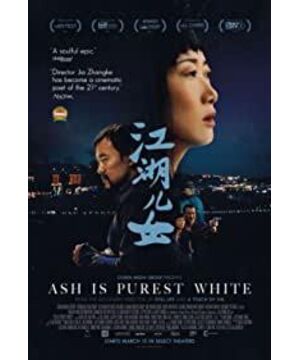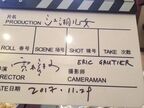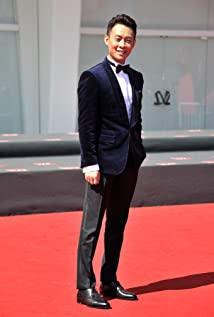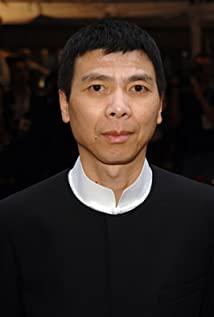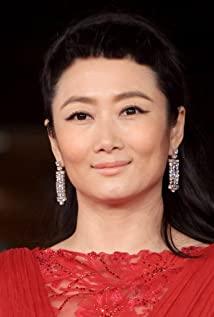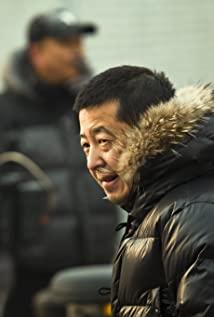In the opening scene of "Children of Jianghu", on a bumpy old-fashioned coach, a child is sleeping against the window. Suddenly she woke up, as if she noticed something, and turned her head to look at the camera.
This "junk film" image is so original, real and sharp, it reminds me of the "Xiao Wu" 20 years ago. The first scene is also Xiao Wu taking a long-distance bus. He claimed that he was a policeman and refused to buy a ticket. The next little action proved that he was actually a thief. The 4:3 format, gritty and rough opening scene also amazed the European film industry. Since then, Jia Zhangke has been hailed as "the light of hope for Asian films".
Twenty years have passed, which is longer than the time span in "Children of Jianghu". Jia Zhangke has transformed from the "Chief Jia" circulated among pirated disc dealers into a well-known director and successful businessman, but the watchman of his homeland is not right. He has never changed his sensitivity to the changing times and his original intention to the origin of art.
The last shot at the end of "Children of Jianghu" is also a "garbage film" image-in the surveillance camera, Qiaoqiao's expression is irritable and confused. Such meaningless surveillance pictures will not be saved in the end, just like many big brothers who have been swayed in the rivers and lakes, they also disappeared in the wind in the end.
· Times
In the early years, Jia Zhangke's "Hometown Trilogy" focused on one era - "Xiao Wu" took place in the 1990s, "Platform" talked about the art troupe in the 1980s, and "Ren Xiaoyao" was set at the turn of the century. "The World", "The Good Man in the Three Gorges", and "The Destiny of Heaven" almost happened in the current context at that time, and the two recent films "The Old Man of the Mountains and Rivers" and "The Children of the Rivers and Lakes" have a super long time span, which not only shows the people of a certain era. The style and appearance pay more attention to showing the changes of society and people in the long-term change.
In order to express a different sense of age, "Old Man in Mountains and Rivers" and "Children of Rivers and Lakes" both use different photographic equipment and different frame quality, giving people an intuitive visual impact. Changes in details such as clothing, makeup, means of transportation, and communication tools also constitute a reminder of the era.
The difference is that "The Old Man of the Mountains and Rivers" intentionally highlights these distinctions, while "Children of Jianghu" chooses gradient and fusion - the year prompt subtitles and subtitles are removed, and the era is integrated into the narrative rather than leading the narrative, and the overall photography style is also better. for unity. Before you know it, the characters on the screen and the audience outside the screen have already experienced the passage of time, so looking back, you will be more emotional.
· Change
When the time span is long enough, the society will change, and the small person can only be coerced into it. Especially for Shanxi, the "energy-single province" that Xu Zheng said in the film, many families are facing the anxiety of restructuring and relocation. Qiao Qiao said that she might be relocated to Xinjiang with her father. The coal mine where her father worked represented a traditional industry that was about to be exhausted. Brother Bin listened, but he disagreed, because the machinery factory where Brother Bin worked happened to meet the trend of demolition and reconstruction. . The separation of the two was actually foreshadowed by the times.
Coal mines began to be transformed and restructured, triggering a series of contradictions in the process of privatization. Qiaoqiao's father used Jiujin to denounce the manager's corrupt behavior, reminiscent of the angry miner Hai played by Jiang Wu in "Tian Destined"; Zhang Jinsheng in "Old Man of Mountains and Rivers" also took advantage of the opportunity to contract the coal mine and fired his manager. Friend and foe.
After Qiaoqiao was released from prison, he took the Yangtze River passenger ship to Fengjie, Chongqing to find Binbin's whereabouts, which overlapped with the route of Sanming looking for his wife in "The Good Man in Three Gorges". She saw the rising water level swallowing the county seat, and the faces of the migrants who were about to board the ship were full of confusion. Sanxia people, like Shanxi people, were forced to leave their hometowns in the midst of great changes; when their roots were gone, their hearts changed.
From Datong to Fengjie, from the north to the south, from the Central Plains to Xinjiang, from the train to the ferry... This is the film of Jia Zhangke's film with the widest geographical span and the farthest protagonist.
· money
The original English title of "Children of Jianghu" is "Money and Love", money comes first, and love comes second. It's vulgar, but it's also very appropriate. The relationship between money, love and righteousness constitutes the main line of this criminal romance.
Qiaoqiao is a modern heroine in a certain sense. In a society shrouded in the desire for money, she is the only one who still adheres to the morality of the rivers and lakes. Qiaoqiao is very particular. Brother Bin’s driver took her home. She felt that she had delayed other people’s work to make money, and insisted on paying the fare; Lai: I took you in out of righteousness, but you still measure it with money?
Qiaoqiao and Brother Bin parted ways because of their different views on money. Brother Bin had a sigh of relief and always wanted to fight. He refused to accept: Why can even my old horse drive a Bentley? The times have changed drastically, people will always change suddenly, and the gap between the rich and the poor will widen, which will cause imbalances in people's hearts.
After the planned economy was restructured, many people worshipped money to the point of madness. Even the performers on the boat "The Good Man of the Three Gorges" shouted, "When people float on water, they have to rely on U.S. dollars!" His son, named Zhang Daole (Dollar), was born and went abroad to make a fortune.
· love
In Jia Zhangke's films, there is almost no complete love.
Xiao Wu and Mei Mei in "Xiao Wu" ended in ambiguity, and Qiao Qiao in "Ren Xiaoyao" had a boyfriend but had a relationship with each other, and "Old Man in Mountains and Rivers" finally went from a love triangle to a positive result, and finally got divorced.
"Children of Jianghu" also had a love triangle, and in the end it ended in vain. Qiaoqiao and Binbin have very different attitudes towards love. Qiaoqiao hints that she wants to have a stable family, but Binbin has no desire to be her "family"; Qiaoqiao asks "Am I still your girlfriend?" Binbin can only shy away and say, "I'm not the Guo Bin I used to be."
Binbin returned to his hometown after a stroke, and this time it was his turn to ask for it - "Why didn't you start a family?" "Why didn't you ask me where Lin Jiayan went?" Still holding Qiaoqiao's hand in the car, Hope to get back together. Coincidentally, he said indifferently that Jianghu is not just a righteous word. Righteous and ruthless, unrelated to love, is the best response to the ruthlessness of the year.
· Group portrait
From the first scene, "Children of Jianghu" is destined to belong not only to Qiaoqiao and Brother Bin, but also to all beings in the society. As a fixed symbol of Jia Zhangke's films, Zhao Tao put on the red smock + black apron in "Ren Xiaoyao", the yellow shirt + color matching shoulder bag in "The Good Man of Three Gorges", just like walking all the way from the past Jia Zhangke movies woman coming over. She is the protagonist and a spectator of the times. The camera follows her as she travels south and north to capture portraits of people from all walks of life.
Jia Zhangke's films reject brand-new studios. He likes to "carry the camera to the street" and go to open public places to record the status and expressions of various characters such as workers, thieves, hooligans, police officers, intellectuals, and wealthy businessmen. The special thing about "Children of Jianghu" is that Jia Zhangke opposed the persistence of non-professional group performances, and invited Xu Zheng, Zhang Yibai, Zhang Yi, Dong Zijian, Diao Yinan and other familiar faces to guest appearances, and most of them were greasy "liars"—— Some of them considered themselves scientists and turned out to be small shops, and some of them were among the "Top Ten Outstanding Young People" but raised their mistresses outside. After being deceived many times, Qiaoqiao also became sophisticated and slick, and learned how to survive with a tit-for-tat.
· Dance
Zhao Tao is a dancer, and most of her roles in Jia Zhangke's films are related to dancing. Jia Zhangke has a deep-rooted complex with vocal music and dance venues such as art troupes, small theaters, KTV, singing and dancing halls, and similar scenes appear in every Jia Zhangke movie.
In "Children of the Rivers and Lakes", Qiaoqiao and Brother Bin danced on the dance floor to their heart's content, and danced exactly the same dance as Zhao Tao and Zhang Yi in "The Old Man of the Mountains and Rivers". Brother Er Yong brought them a fresher national standard, and Qiao Qiao shook his head and said, "It's too foreign to learn."
In the movie, there was even a documentary scene where the uncle and aunt were happily dancing square dance on the street, and everyone's eyes were shining.
The use of golden songs of the times is also Jia Zhangke's specialty. This time, I used the theme song "A Life of Drunkenness" from "Blood and Blood", which is in line with the situation of "Children of Jianghu". When Qiao Qiao was disappointed, I went to listen to the performance of the small song and dance troupe in Fengjie, and sang "How much love can come again" - in "The Three Gorges Good Man" there was also a shirtless man singing on the stage, the last time he sang "Wine". Do it if you sell it."
From the perspective of time span, "Children of Jianghu" almost covers most of the background of the previous work, and the characters, actors, lines, plots, costumes, and props all "pay tribute" to the previous work, which can be regarded as the 20th anniversary of Jia Zhangke's creation. A phased summary. The name "Children of Jianghu" seems to be a martial arts film but it is not, but Jia Zhangke will really make a big leap into the field of ancient costume martial arts films, and "Children of Jianghu" will probably become a watershed linking the past and the future.
Of course, I believe that the core of "In the Qing Dynasty" must still be a work of Jia Zhangke, and it will continue to tell the love, hatred, and chivalrous complex of the children of Jianghu. No matter which era he focuses on, what Jia Zhangke holds in his heart is his feelings for the time and the present. As Guan Hu said: "Looking back in 50 years, Jia Zhangke's films will best reflect current China."
View more about Ash Is Purest White reviews


